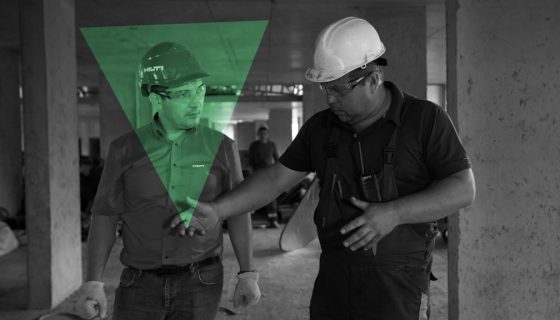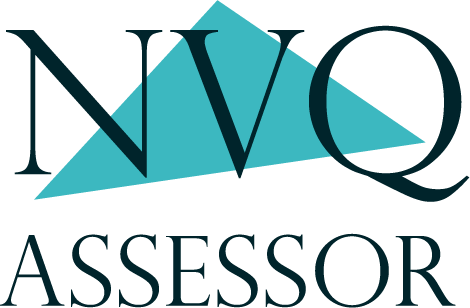 By Katherine Little
By Katherine Little
Published 19th Dec, 2022 | Blog
You may have noticed that we mention a phrase frequently. This is occupational competence. What does this actually mean? How can you evidence occupational competence as well? If you look at any job posts and they say you need to evidence occupational competence then you need to know about it. So we’re going to take you through what it is and how you can evidence this, as it’s an extremely important part of being an Assessor.
What is Occupational Competence?
Google defines occupational competence as ‘Being sufficient in knowledge and understanding of the occupation. To make sound, valid and quantifiable judgements about a learner’s knowledge, skills and understanding of the task they are being assessed on.’
So this is a lot and can come across as confusing! To simplify it, it basically means that you have sufficient knowledge and understanding in your subject area to know when your learners are completing a task correctly. For example, a hairdresser wouldn’t be occupationally competent to assess health and social care.
How can you evidence that you’re occupationally competent?
Evidencing Occupational Competence
To evidence occupational competence that you have, you need to demonstrate that you have the knowledge and understanding in the area you want to assess. So if you want to become a construction assessor, you need to have sufficient skills and knowledge in that vocation. This can be evidenced in two ways.
Relevant Work Experience
This is one of the best ways you can demonstrate occupational competence. A minimum of two years of work experience in the occupation, doing the same or similar jobs is considered a satisfactory amount of time. Although it is worth checking if your employer is looking for a longer work period. We have seen this before in some job advertisements. Where they want at least 4 or more years of relevant work experience.
Appropriate Vocational Qualifications.
Holding vocational qualifications is also accepted as demonstrating competency. This is because they contain a mix of both theory and practical. A wholly academic qualification doesn’t have this mix. Usually, the qualifications need to be at Level 3 or above. However, this does vary between specifications and employers.
By having both or either you will have demonstrated sufficient knowledge and understanding and prove your occupational competence. If you have any questions at all about becoming occupationally competent, then you can send us an email at hello@nvgassessor.org.uk and we would be happy to help.
NEWSLETTER
Fortnightly Assessor Jobs, Blog Posts and Exclusive Content straight to your inbox.
Welcome!
You may have noticed that we mention a phrase frequently. This is occupational competence. What does this actually mean? How can you evidence occupational competence as well? If you look at any job posts and they say you need to evidence occupational competence then you need to know about it. So we’re going to take you through what it is and how you can evidence this, as it’s an extremely important part of being an Assessor.
What is Occupational Competence?
Google defines occupational competence as ‘Being sufficient in knowledge and understanding of the occupation. To make sound, valid and quantifiable judgements about a learner’s knowledge, skills and understanding of the task they are being assessed on.’
So this is a lot and can come across as confusing! To simplify it, it basically means that you have sufficient knowledge and understanding in your subject area to know when your learners are completing a task correctly. For example, a hairdresser wouldn’t be occupationally competent to assess health and social care.
How can you evidence that you’re occupationally competent?
Evidencing Occupational Competence
To evidence occupational competence that you have, you need to demonstrate that you have the knowledge and understanding in the area you want to assess. So if you want to become a construction assessor, you need to have sufficient skills and knowledge in that vocation. This can be evidenced in two ways.
Relevant Work Experience
This is one of the best ways you can demonstrate occupational competence. A minimum of two years of work experience in the occupation, doing the same or similar jobs is considered a satisfactory amount of time. Although it is worth checking if your employer is looking for a longer work period. We have seen this before in some job advertisements. Where they want at least 4 or more years of relevant work experience.
Appropriate Vocational Qualifications.
Holding vocational qualifications is also accepted as demonstrating competency. This is because they contain a mix of both theory and practical. A wholly academic qualification doesn’t have this mix. Usually, the qualifications need to be at Level 3 or above. However, this does vary between specifications and employers.
By having both or either you will have demonstrated sufficient knowledge and understanding and prove your occupational competence. If you have any questions at all about becoming occupationally competent, then you can send us an email at hello@nvgassessor.org.uk and we would be happy to help.
NEWSLETTER
Fortnightly Assessor Jobs, Blog Posts and Exclusive Content straight to your inbox.
Welcome!

Building Services End-Point Assessor
The employer is a Training Sector organisation in Leamington Spa who specialise in developing qualifications for the Construction and Civil Engineering sectors. They develop a range of industry qualifications including Apprenticeships, which are developed and assessed by sector specialists with real industry knowledge. They currently have a fantastic opportunity an experienced Building Services Engineer or […]

Childcare Assessor (Trainee or Qualified)
KM have an exciting opportunity for a Childcare Assessor to deliver full Apprenticeships in Childcare! This opportunity is open to both Trainee and Qualified candidates. Trainee applicants – this is a great opportunity for a Room Leader (or above) to transition to a new and rewarding career within the training industry! Qualified Assessors – applications […]

Skills Tutor
Educated Appointments are delighted to be supporting a fast-growing premier provider of accountancy training and apprenticeships. Due to increased demand for apprenticeship training programmes they are looking out for new Tutor to join our team. This role sits within the Impact Skills Team and ultimately reports to the Programme Delivery Director. This role includes travel […]

Business and Education End-Point Assessor
The role of an Apprenticeship End-Point Assessor is to provide independent, fair, reliable, and consistent assessment services to Training Qualifications UK customers working with Apprenticeship Standards. End-Point Assessors are required to use assessment experience with robust and relevant industry knowledge to form judgements and grading decisions upon the completion of a variety of assessment activities, […]


